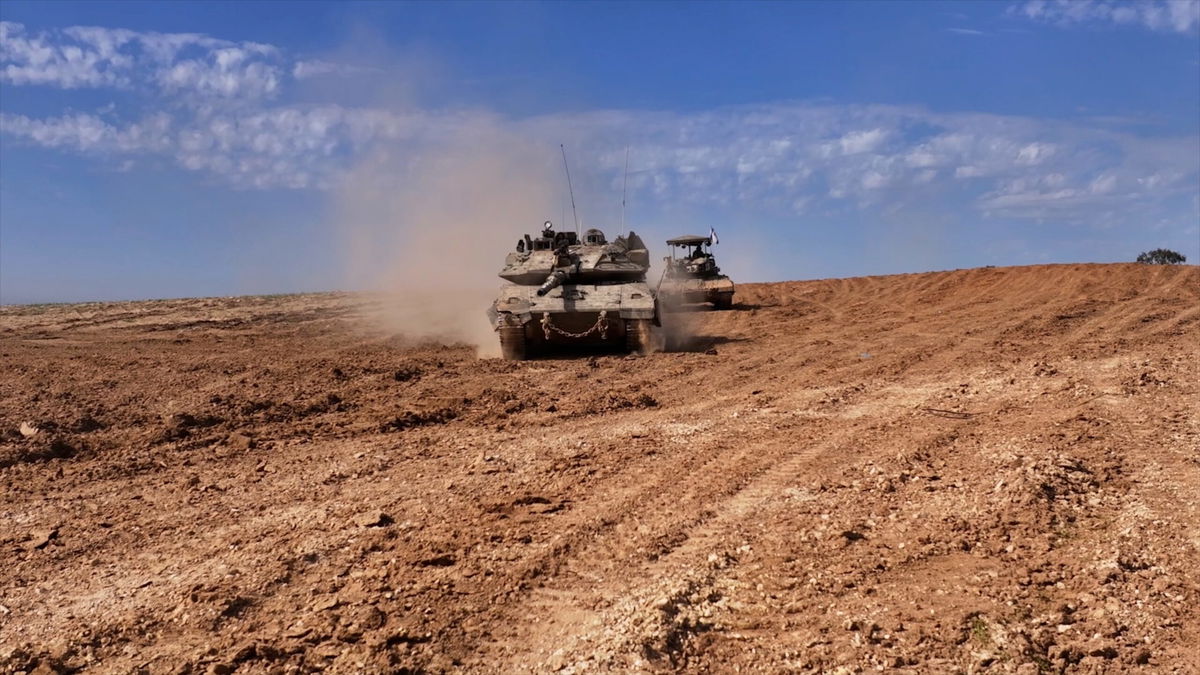Division 36 has begun entries following a two-week preparatory airstrike. Photo Credit: ImageBank4U/ShutterStock
On September 21, Israeli forces confirmed the deployment of tanks into Gaza city as part of Operation Gideon II. The 36th Division began entries following a two-week preparatory airstrike aimed at sequestration of the combat zone and promoting ground forces’ advancement. The operation aims to fully control Gaza, a densely populated area that previously housed around one million residents. Current estimates are between 600,000 and 800,000 civilians remaining in the city, many of whom cannot escape due to limited resources, destruction of infrastructure and lack of safe corridors.
The humanitarian situation in Gaza is rapidly deteriorating. The city has lost all phone and internet connectivity, indicating a potential strengthening of military operations. Many residents remain trapped in central and western regions where continuous artillery fires have destroyed homes, hospitals and other important infrastructure. The lockdown of essential supplies, including food, water and medical aid, has resulted in a severe shortage. Reports show that tens of thousands have already died since the conflict escalated, with many deaths attributed to starvation and inability to access medical care.
Despite the dire circumstances, Israeli forces sought to provide evacuation options through temporary corridors and drops of leaflets. However, the scale of the conflict and the density of population make safe evacuation extremely difficult. Civilian movements are large, with thousands of people searching for shelter in overcrowded buildings or attempting dangerous journeys to reach areas outside of the city. Lack of electricity, running water and health services have exacerbated the crisis, making conditions more unstable for those remaining in Gaza. Internationally, Israel’s actions have received serious criticism. The UN Commission accused Israel of committing actions that could represent Gaza’s genocide, citing widespread use of civilian casualties and food shortages as a weapon of war. In response, several countries, including the UK, Canada and Australia, have officially recognized the Palestine. Israeli officials have condemned these perceptions and described them as unfair rewards for violence and terrorism. Some Israeli ministers, including the Finance Minister, have shown an eagerness to coordinate reconstruction efforts in Gaza with the United States despite continued military operations, highlighting the complex balance between military action and humanitarian considerations.
Domestic, the Israeli government faces increased pressure on policies in the West Bank. Ministers such as Itamar Ben Gwil have publicly called for the full annexation of the territory, arguing that international recognition of Palestine undermines Israel’s security and territorial claims. Prime Minister Benjamin Netanyahu reportedly is considering reintroducing the government’s annexation agenda, a move that is likely to cause further tensions both domestically and internationally. Internal political debates reflect broader questions about Israel’s long-term strategy in the region, balancing security concerns with international diplomatic pressures.
The combination of intensifying military operations in Gaza and the ongoing debate over the West Bank has created a very unstable situation. The international community remains divided, with some countries supporting Israel’s right to self-defense, while others urging an immediate ceasefire and accountability for alleged violations of international law. As the situation continues to unfold, the outlook for peace and stability in the region remains uncertain, and the humanitarian crisis shows no immediate signs of decline.
The unfolding events in Gaza and the potential annexation of the West Bank are likely to have lasting political, social and humanitarian consequences. The scale of civilian suffering combined with international condemnation and internal political pressures underscores the complexity and urgency of the situation, making the future of the region highly unpredictable.








